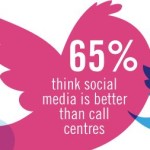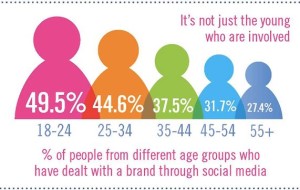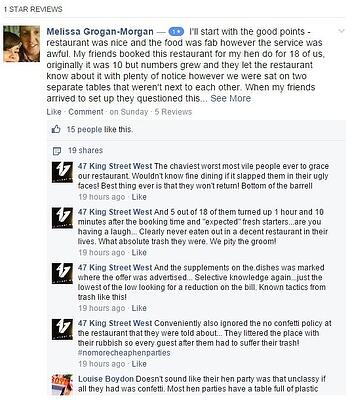Once upon a time brands relied upon 'brand recognition' to attract customers. If it was advertised enough and product images were marketed, it would familiarise the product with customers. This hopefully resulting in a product that would likely sell.
With the significant emergence of social media, business has been given a powerful tool for connecting to consumers and helping them along the customer decision journey. This tool has meant business leaders no longer treat social media as separate activity, or merely an add-on duty for the marketing team, it is an essential strategy for the entire company to engage with.
Nowadays the fairy story of product marketing has reversed. No longer is it product-led, it is now consumer-led. Products are now recognised and sought, not because of the product placement techniques of advertisers, but because of product reviews and ratings by, you guessed it... consumers. It doesn't take hundreds of thousands of pounds anymore to get a product recognised and used. A product will sell because people say its good.
There are four key points to the customer decision journey, and at each stage suppliers are producing content to help customers decide on their product.
Monitoring the business
Knowing exactly what is said about a company on-line should be one of the first aspects of a social media strategy. Before any engagement with the customer, simply being aware of the good, the bad and the ugly being talked about a company should be the starting point. Straight after this should be the engagement taking place within the company to communicate this information, mitigate its effects and start creating positive feedback.
Being responsi ve
ve
Answering questions from customers immediately removes the anxious waiting endured by someone on the end of a phone. By responding to
an individual, companies take advantage of the 'butterfly effect', whereby if they help just one person, then as is the nature of humans, they become effective communicators on behalf of the company and in turn will tell others of their great experience. Being responsive doesn't mean only responding to a crisis, it can work equally well as a proactive form of a thank you, it can tell a customer that their purchase has been recognised and made a difference.
Letting customers do the marketing
Once a customer has bought a product or service encouraging them to engage further by talking about it and sharing their experience is a powerful social media effect. By providing a platform for engagement via a blog or a forum enables customers to participate in a conversation with the company and other consumers. Having products recommended by customers also helps in keeping negative feedback to a minimum, as noted whilst 'Monitoring your company'.
Companies are also beginning to incentivise the sharing of additional content supplied to customers, rewarding them for doing so with gift cards or loyalty points. When customers themselves are explaining the products to others it becomes a powerful marketing tool. Wherever possible companies are seeking ways to amplify this engagement by customers.
Your customer is your stakeholder
If there is one key stakeholder in any company then it is the customer. No customer = no sales. If a business is to have customers then it needs to boost awareness of its products and services. Producing content and directing them to a website is a good starting point. Getting them to buy into shared ideals and values will keep the customer returning. By getting levels of further engagement from customers a company can effectively increase its audience and potential customer base further by successfully leading the customer to spread the word. A good social media strategy will produce a result whereby marketing is self-perpetuated by the customer, which has all been lead through the creation of appropriate content for consumers.
The days have gone where marketing was lead through brand recognition. The growing importance of social media, and the connection between social media and customer decision, has made the relationship with consumers more important than ever. Customers want to feel a connection with a company, with shared values at its core.





